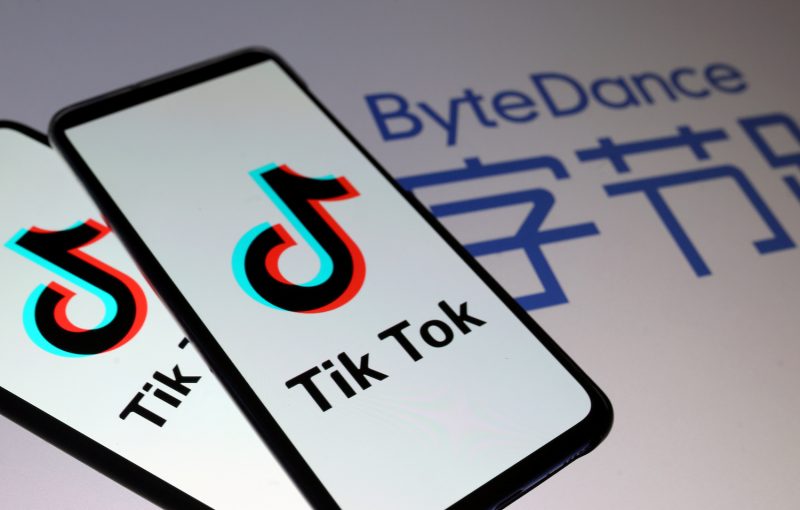The US Treasury Department said on Wednesday it wants a resolution of national security concerns it has raised over China-based ByteDance’s acquisition of US social media app Musical.ly, which it then merged into video-sharing app TikTok.
The statement came a day after China-based ByteDance filed a petition with the US Court of Appeals in Washington challenging a Trump administration order set to take effect on Thursday requiring it to divest TikTok if it cannot reach agreement with US regulators or win an extension.
“The Treasury Department remains focused on reaching a resolution of the national security risks arising from ByteDance’s acquisition of Musical.ly,” spokeswoman Monica Crowley said. “We have been clear with ByteDance regarding the steps necessary to achieve that resolution.”
The Asia Eight: Daily must-reads from world’s most dynamic region
The divestiture order was based on a government review of ByteDance’s acquisition of Musical.ly in 2017. The Trump administration contends the merged entity is a national security risk because the personal data of US users could be obtained by China’s government. TikTok, which has over 100 million US users, denies the allegations.
ByteDance’s petition named President Donald Trump, Attorney General William Barr, Treasury Secretary Steven Mnuchin and the Committee on Foreign Investment in the United States (CFIUS), the inter-agency panel that reviews certain transactions involving foreign investment on national security concerns.
“We remain focused on continuing to engage CFIUS and look forward to reaching a resolution that addresses their security concerns, even as we disagree with them,” TikTok said in a statement on Wednesday.
Trump directed ByteDance, which owns 100% of TikTok, in an August 14 order to divest the app within 90 days, which falls on Thursday.
ByteDance has been in talks for a deal with Walmart and Oracle to shift TikTok’s US assets into a new entity called TikTok Global. It said on Tuesday it was requesting a 30-day extension so that it can finalize terms. Trump said in September the deal had his “blessing.”
“Facing continual new requests and no clarity on whether our proposed solutions would be accepted, we requested the 30-day extension that is expressly permitted in the August 14 order,” TikTok said in a statement.
ByteDance said a fourth proposal submitted on Friday sought to address US security concerns “by creating a new entity, wholly owned by Oracle, Walmart and existing US investors in ByteDance, that would be responsible for handling TikTok’s US user data and content moderation.”
Separate restrictions on TikTok from the Commerce Department have been blocked by federal courts, including restrictions on transactions that were scheduled to take effect Thursday that TikTok warned could effectively ban the app’s use in the US.
A ban on Apple and Alphabet’s Google offering TikTok for download for new US users that had been set to take effect Sept. 27 has also been blocked by federal judges.
‘Legal limbo’
China’s Ministry of Foreign Affairs reported on November 11, in a reply to a question on whether Bytedance put forward a new proposal, following the Trump administration request Tiktok should be sold to a US company, said the issue is currently in legal limbo facing a swathe of US lawsuits, from users and others.
Foreign Ministry spokesperson Wang Wenbin said: “We have clarified China’s principled position on this issue many times.
“We have always opposed the US’s generalisation of the concept of national security, abuse of national power, and unreasonable suppression of foreign companies,” he said.
“We have also noticed that not long ago, the relevant judge in the United States ruled to block the TikTok-related injunction of the US Department of Commerce and wrote: ‘The US government’s description of the threat to national security caused by the TikTok application is hypothetical.’
“We hope that the US will truly respect the principles of market economy and fair competition, and compliance with international economic and trade rules, [to] provide an open, fair, just, and non-discriminatory business environment for companies from all over the world to invest and operate in the United States.”
$27 billion in ad revenue
Meanwhile, ByteDance is on track to generate at least 180 billion yuan ($27.2 billion) in advertising revenue in China this year, which will cement its no. 2 spot in China’s digital ad market, two people with knowledge of the matter said.
The company’s overall revenue goal for 2020 is around $30 billion, Reuters previously reported, so the latest figures mean it is in line with its plan.
While TikTok is what ByteDance is best known for globally, the app contributes little to the Chinese company’s revenue overall. It relies on Douyin, the Chinese version of TikTok, for nearly 60% of ad revenue, followed by news aggregator Jinri Toutiao for 20% and long-form video platform Xigua for under 3%, according to one source.
ByteDance declined to comment.
ByteDance overtook Baidu to become China’s second largest digital ad player in the first half of 2019 with 23% ($7.6 billion) of the total digital ad spend in the country, according to consultancy R3, with Alibaba in first place, raking in $10.9 billion or 33%.
The gap between ByteDance and Alibaba has narrowed this year, according to one source. ByteDance did not disclose ad revenue for 2019, but Reuters has reported it generated total revenue of $16 billion last year.
As ByteDance pursues its global ambitions, it is also looking to step up investment in three main areas at home next year – e-commerce, search and longer-form videos, the source said.
It plans to invest around 10 billion yuan, including the value of traffic and advertising support to partners, on Xigua next year, with the aim of increasing the number of daily active users to over 100 million, a source said.
Douyin’s e-commerce platform, one of the fastest-growing sectors in the company, is projected to hit around 150 billion yuan in gross merchandise value this year, the two sources said. They declined to be named as the information hasn’t been made public.
Final numbers will be adjusted at the year-end to take account of campaigns around events such as year-end sales, which haven’t been launched yet, they said. Douyin held its first major shopping festival on Wednesday, in tandem with Alibaba’s mega shopping event Singles’ Day.
Douyin’s rival Kuaishou, which filed for a Hong Kong initial public offering last week, reported total revenue and ecommerce GMV for the first half of this year of 25.3 billion yuan and 109.6 billion yuan respectively.
In the search arena, ByteDance launched Toutiao Search for the Chinese market last August to take on China’s search engine Baidu. It has since hired experts including former Baidu executives to improve its platform’s architecture and range of search results.
ByteDance is in talks with investors to raise around $2 billion in a new financing round that will value it at $180 billion after the investment, more than double its valuation in the last fundraising round two years ago, Reuters has reported.
It is also exploring whether to pursue a standalone public listing for Douyin or list some of its Chinese operations including Douyin and Toutiao as a package in Hong Kong or Shanghai.
Reuters























